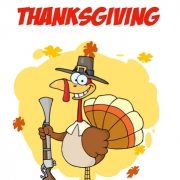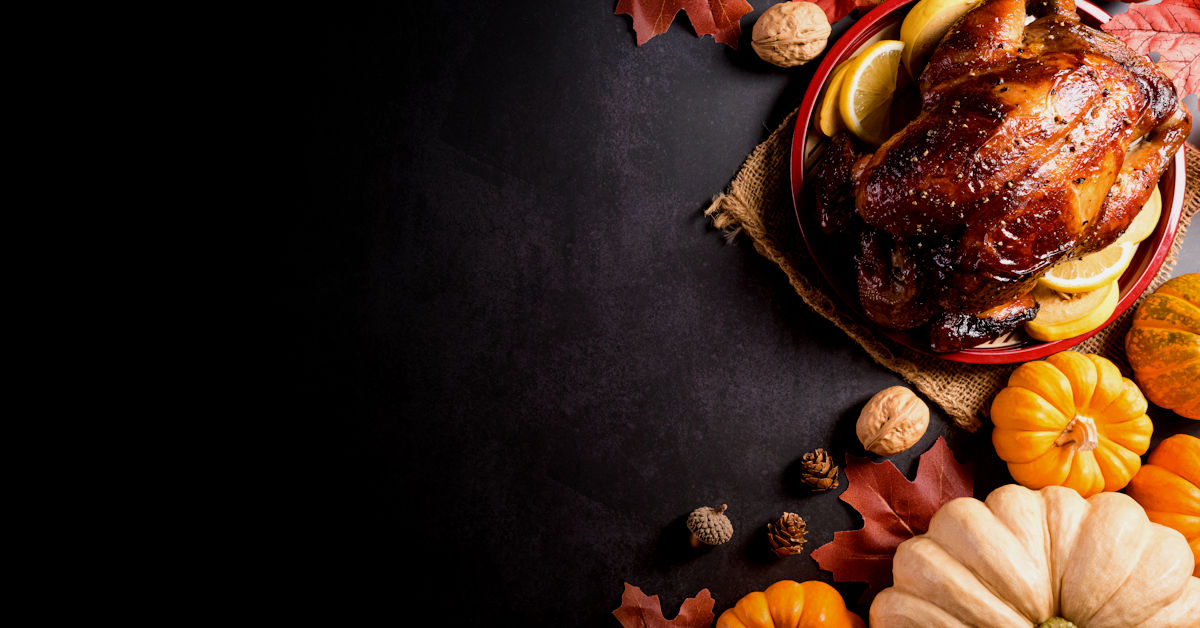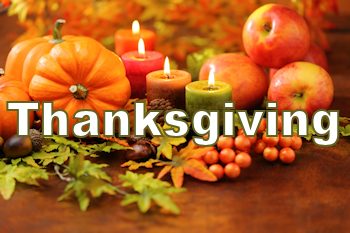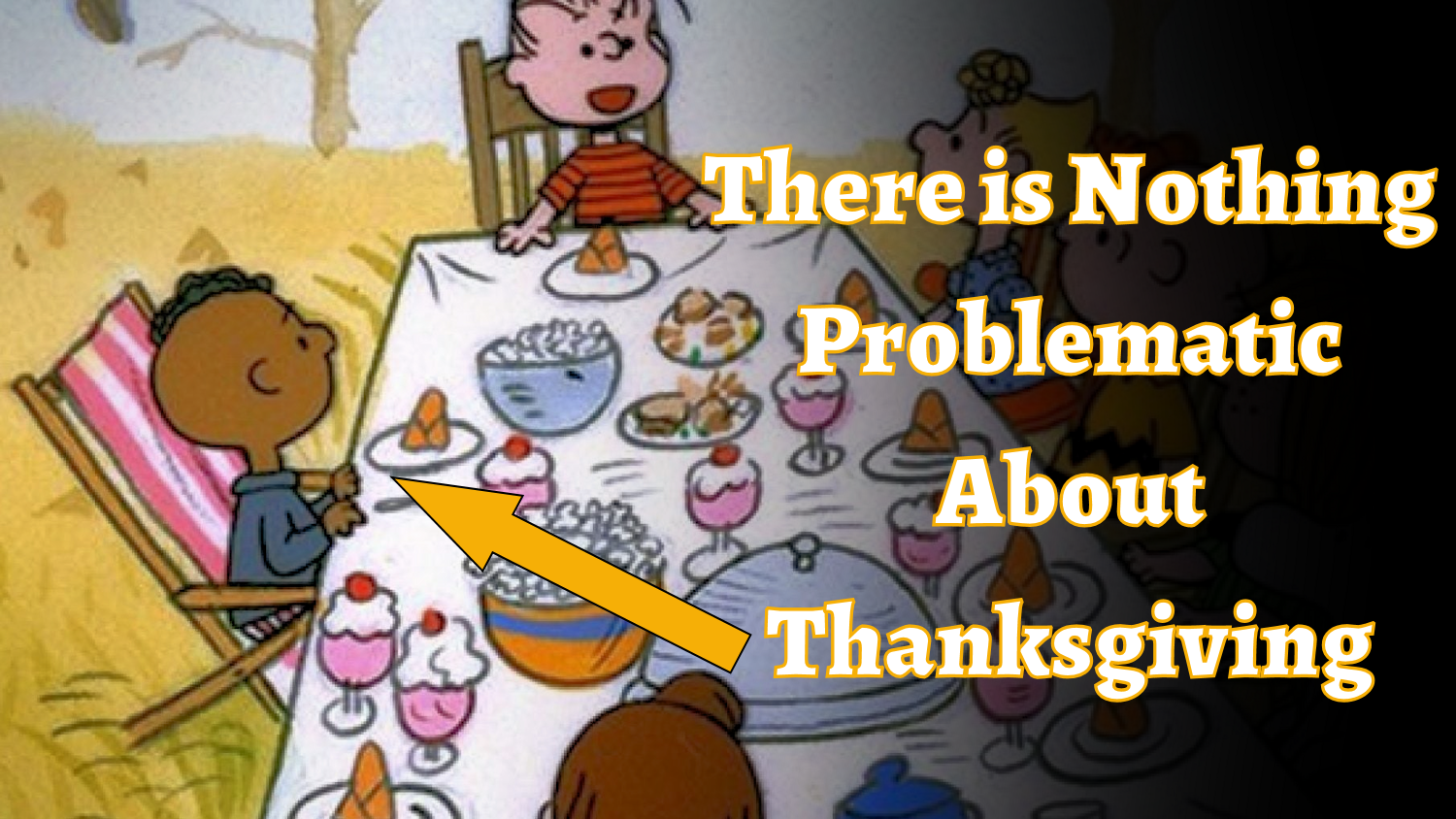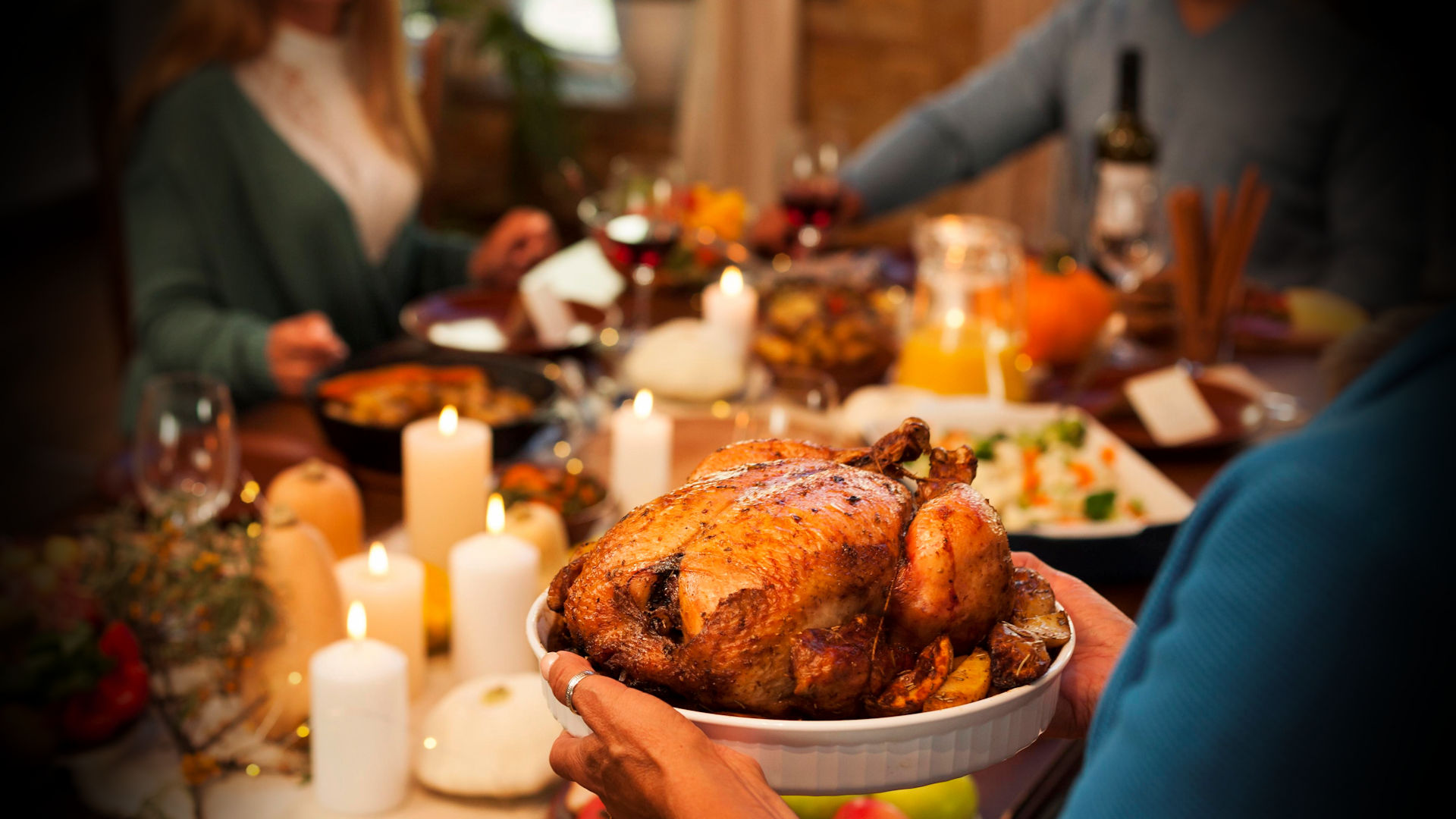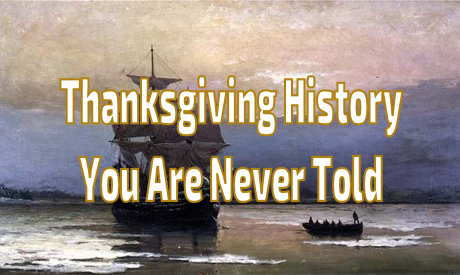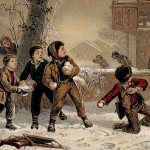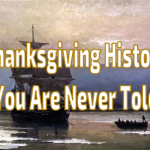Josiah, His Turkeys and His Sweetheart
(Editor’s Note: This Thanksgiving story was published sometime in the early 19th century. Like A Visit from St. Nicholas it was published as a tradition year after year in many newspapers. We found it in the Boston Traveler from 1836, though we noted it dating back as far as 1824 in another newspaper. This is a delightful look an old American Thanksgiving traditions – as well as a great story of love.)
Have you ever been in Windsor, Vermont?
If so, you have heard of Josiah Baker. Indeed, you have heard of him even tho you have not been in the state of Vermont; for he is well known in Boston as the great dealer in poultry in all New England.
About Thanksgiving time, you may see in all parts of Boston Josiah Baker’s wagons, literally crammed with turkeys, geese, chickens, and ducks, together with pumpkins, squashes, and all manner of thanksgiving sauce.
Twas thought by some, if Josiah should die without an heir to inherit his virtues, and perpetuate the stock of poultry, that thanksgiving would have to be abolished altogether in that region; for, as to being thankful upon an empty stomach, it couldn’t in the nature of things be expected. In fact, they tried it on one occasion. Josiah didn’t die, to be sure, but twas just as bad for the time being, as you shall see.
Contrary to all usage, and probably for the sake of doing something wherewith to distinguish himself, the Governor appointed thanksgiving on the same day which had been set apart for that purpose in Vermont. Now, no real Yankee will ever absent himself from his kindred on Thanksgiving day, not even for gain; and Josiah, though a bachelor, was in the habit of having all his blood relations to make merry with him on that occasion; and you know the habits of an old bachelor are not easily broken in upon. Besides, his worthy sister Hester would have felt herself scandalised, indeed, if she were denied the privilege of lashing, and scolding, and storming about as usual, in the hurry of preparation for this joyous festival. Not that she was ill natured, or given to scolding under ordinary circumstances – far from it; but there is a time for everything. Then Josiah’s number relatives, (and you’ve no idea unless you have been there how numerous one’s relations are in that part of the country) who were always expect to partake of the luxuries of his farm-yard, and to devour with an appetite which fortunately returns but once a year, Miss Hester’s puddings, pies, tarts, etc. would have felt anything but thankful if Josiah had gone to Boston, instead of keeping thanksgiving at home. But he had no idea of such a thing.
“He could as well afford to keep his turkeys, as the Boston folks could do without ‘em; and he’d teach Governor Lincoln to appoint the same day as the Governor of Vermont.”
So Josiah kept Thanksgiving, as in times past, at home, though his heart was not as light as usual, for he pitied the Boston folks, and he couldn’t help saying now and then as he cut a slice of turkey, “Governor Lincoln ought to have known better.”
But though there was this drawback upon his happiness, it was trifling, compared with the consternation of the Boston people. His old customers, who had for fifteen or twenty years relied upon him for supplies, and had never once been disappointed, could not believe he would fail to appear now, and even on the day preceding thanksgiving, refused to purchase of others under the full conviction that he would come, though it were at the eleventh hour. But, alas! He came not; and for the first time in their lives, and I hope the last, many of the good citizens were obliged to forego the luxury of a roast turkey, and dine on roast beef; and instead of being thankful, they did nothing but eat, and drink and grumble. But there was no calamity, however great, from which good may not be extracted.
This unhappy event led the good people to reflect upon what might be the consequences if Josiah should be removed by death, leaving no issues to keep up the stock of turkeys; and as life is uncertain, even in Vermont, they set about devising means to avert so serious an evil. Accordingly, Josiah began to receive letters advising him to marry; disinterestedly pointing out to him the cheerlessness of his present mode of life; and hinting also, that if he should die childless, thanksgiving would be entirely broken up. Now, the subject of matrimony had never entered Josiah’s head. His maiden sister attended to his household – darned his stockings for Sunday – washed his neck and ears for him of a Saturday night – and combed his head in more ways than one. In short, he didn’t see what more a woman could do. However, the subject got into his mind, and it was not easy to get it out again. It was constantly before him. He couldn’t even sleep in meeting, but was constantly looking about, and observing how nice and chirk the young women looked. Finally, he concluded to open his mind to his sister, and ask her advice.
After weighing the matter thoroughly, and mourning over the prospect of laying down the scepter, she advised him, (with a magnanimity which none but a sister could exhibit,) to comply with suggestions of his friends, and marry; stating that she was willing to resign her authority to another for the sake of promoting his happiness, but in order to secure the latter, she must make the match herself, at least so far as to point out a proper person for him to court. This was great relief to him, but he would have been better pleased if she could have settled the whole matter. For he had a great horror of encountering one of the sex face to face, having never beein in company with any but his relations. However, his sister, who was in the habit of gossiping in the intermission with all the women that came to meeting, soon made choice of a wife for her brother, in the person of Sally Jepson, who lived but a couple of miles from his farm. She was (as she told Josiah) of a rugged make, thick set, wholesome looking, and as smart as as steel-trap. So it was agreed upon that on Sunday night, Josiah should commence his courtship.
Accordingly, after supper, he mounted his horse, and started with much fear and trembling, for Squire Jepson’s. He rode very slow, that he might con over what he should say to Sally; but after thinking over many forms of speech, he arrived at the home quite at a loss for how to open his heart. Having tied his horse to the fence, he thought he would reconnoiter the premises before going in; but although there was a light in the sitting room, the paper curtains were down, and nothing could be discovered. After walking around the house two or three times, and going as often to the fence to see if his horse was fastened securely, he finally made a desperate effort, went to the well, and took a drink from the bucket, and then gave a rap on the door.
“Walk in” bawled out the Squire. After fumbling round some time, he finally raised the latch, and entered.
“Why Josiah Baker!” exclaimed the Squire. –
“Why Mr. Baker!” echoed his wife, “Is that you? Set to the fire.”
Sally said nothing, laid her hands upon her lap, and looked in the fire. The three younger children, who were sitting on the hearth, commenced whispering together respecting the object of his visit; for it being Sunday night, they suspected he had come a sparking. Silence continued for some minutes, till the children could contain themselves no longer, but snickered out a laughing. “Now pick up your legs, and go to be for your manners,” said the Squire, the dame at the same time giving them a slap which helped them on their way considerably.
After the confusion, arising from this sudden movement had subsided, the dame asked, “How is Miss Hester, Mr. Baker?”
“Reasonable, I thank you.”
After an interval of a few minutes the dame broke out again, “I think Deacon Spring’s wife must be poorly, for I see she had sat down in the last prayer, and didn’t get up for the blessin’.”
“Well, now, I didn’t mind that,” said Josiah.
“Where, where was your eyes, Mr. Baker?”
Josiah made no reply; for the fact was, his eyes was fixed upon the corner pew on the right hand side, where sat Sally Jepson.
“Our little man was unusual solemn today. I thought the self-righteous was pretty well cut p. The shoe fitted a good many of ‘em”
Josiah replied, ‘Yes’. The truth was, he would have given the world to change the subject, if he had known what to say, for his thoughts had been with his eyes, upon Sally, and he had not heard a word of the sermon.
“Even the singers seemed uncommon balked up,’ said the Squire. “I’ve never heard ‘em sing louder. But I do wish they’d give up the new collection, and to Mear and bray, so that a body could jine with ‘em. Twould be more edifyin’. And then they’ve got to openin’ their mouths so wide, that none of the sound goes through the nose at all, and seems to lose all the solemnness as twere”.
“Didn’t you think, Mr. Baker, that the little man was uncommon lifted up in prayer,” said the dame.
Fortunately for Josiah this was a leading question, and that blessed monosyllable came to his relief. Just at that moment the clock behind the door began to strike nine, and before it was done, the Squire and his wife had taken the candle and gone to bed, cautioning Sally not to forget to cover up the embers after Mr. Baker was gone.
Now though the sudden departure of the old folks had relived Josiah from one dilemma, it left him in a worse one; for here he was alone with Sally without a single idea in his head, and his tongue cleaving to the roof of his mouth, which was as dry as a powder horn.
“I believe my horse is a little uneasy,” he said, after a silence of several minutes; and he jumped up and went out to the fence, and walked around a little, took another drink from the well, and then rushed into the house, determined to make a bold push and broach the subject at once. So he drew his chari up near to Sally, and addressed her:
“Miss Sally! – darnation!—“
“What ‘d you say, Mr. Baker?”
“Darnation!”
“Oh! I thought you spoke to me.” Sally picked up the tongs and laid the brands together.
“What d’you think of getting married, Miss Sally?”
“Did you speak to me, Mr. Baker?”
“Certainly I did—there’s nobody else to speak to as I see,” said Josiah, looking round the room.
Sally now began to color up, her throat swelled, and she reminded Josiah of one of his turkeys, and thus furnished him with a topic of conversation.
“Miss Sally, do you love turkey?”
“Yes”.
“So do I,” said Josiah.
“Which do you like best on it, apple sauce or cranberry?”
“So do I,” said Josiah. “Which do you think is the sweetest, Sally, honey or maple sugar?”
“Honey.”
“Thunder! — we’re as nigh alike as two pumpkins. Now, Sally, I’ll you what’s the sweetest thing in nature – it’s you.”
“Now be still, Mr. Baker; mother says praise to the face is open disgrace.”
He now drew his chair closer up to hers, for as he told his sister afterwards, he began to get his pluck up. “Sally,” say he, “What’s the sign, when anybody treads on your toe?”
“It’s a sign they love you. Oh! Mr. Baker, you’ve mashed my foot all to pieces!”
Upon this he threw his arms around her neck, and gave her such a smack as Sally Jones got when old Mrs. Jones thought her bottle empt’ins had burst.
“Whats the matter, me dear,” said the Squire, who was awaked out of a sound sleep by his wife’s jumping up in bed.
“Nothin’”, said she, “Only I heard a great cracking just now. I thought at first twas your shootin’ gun went off, but I guess it’s only the frost coming out of the ground.”
At the mention of the gun, the Squire got out of bed, and opened the door to the sitting room. “Sally, are you up? What noise was that?”
“Twas – twas: — I jist shut the front door – that’s all the noise I heard.”
“Well, you’d better put the nail over the latch, and go to bed.”
The next morning the old lady gave Sally a severe scolding for slamming the door so hard, when people were asleep.
That interesting interview, and above all, that parting kiss, was more than Sally Jepson could stand unmoved – and on the next Sunday, when she went to church, and got a sly wink and a nod from Josiah, for her life she couldn’t tell whether she had a heart left among her good and chattels, although she tried all meeting time to decide the doubt. Josiah repeated the kiss on that very evening, and performed more, for he popped the alternative, an infallible symptom that his question had gone straight to her heart, and caused it to flood her cheeks.
The parson blessing the happy twain, and they became one flesh – very much to the delight of all the lovers of thanksgiving dainties – who in that union foresaw a perpetuation of Josiah’s incomparable breed of turkeys.


